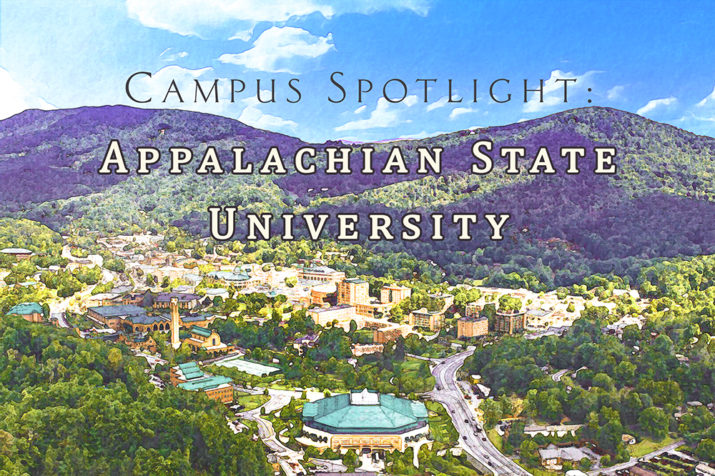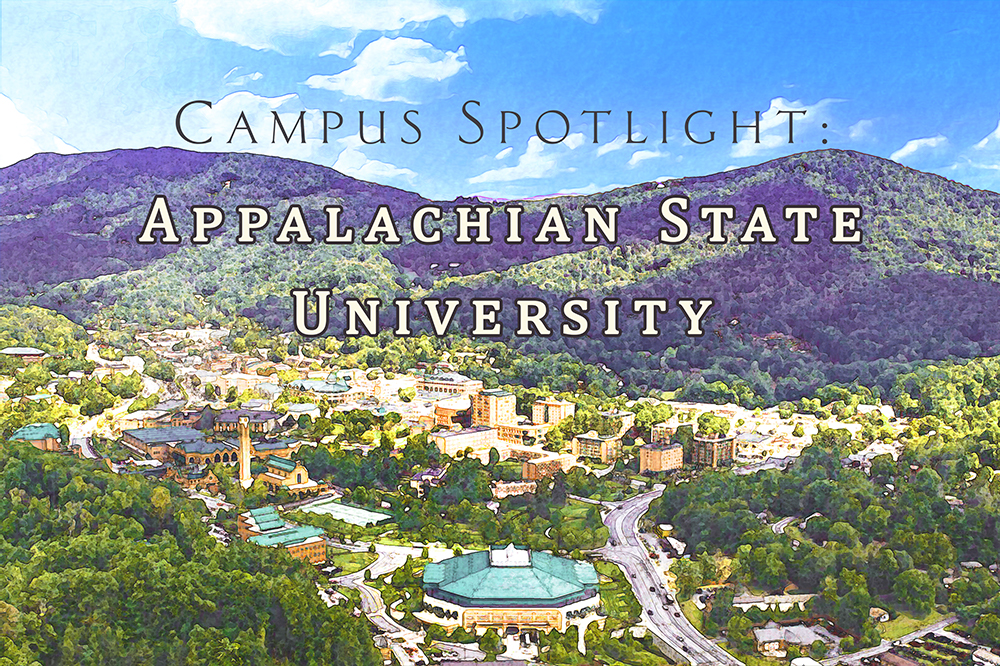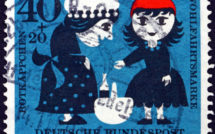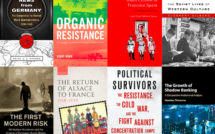

This is part of our special feature, Me Who? The Audibility of a Social Movement.
A spotlight on Appalachian State University.
Not far from the scenic Blue Ridge Parkway―the second most visited National Park Service area―lies Boone, North Carolina. It is in this spectacular mountainous landscape that Appalachian State University (ASU) has stretched its green campus since 1899. As one of the seventeen institutions that are part of the University of North Carolina system, ASU has grown to offer more than 150 different degree programs for undergraduates and graduates, and has successfully fostered its relationship with communities in the region. Defining itself through its pioneering spirit overcoming the hardships of Appalachia, it has shown a commitment to serving underrepresented populations, such as first generation students and those coming from rural areas. ASU has become a sought-after institution in the Southeast, receiving recognition for its technology-driven and internationalizing efforts, as well as its innovativeness in pedagogical approaches.
In this spotlight, which accompanies a special feature exploring some of the significance and ramifications of the #MeToo movement in various places in the world, EuropeNow gathers ASU scholars who have put gender at the heart of their research and teaching. Their contributions demonstrate the different ways in which questions of gender are incorporated in various disciplines, but also in personal intellectual journeys that interrogate the role of scholars and teachers in knowledge production and diffusion. Alison Gulley, from the Department of English, shares her strategies in teaching about women’s sexuality and the difficult topic of rape through medieval literary characters. As she prepares her students for a world of gender inequalities, her classroom experience enriches the conversation about students’ reaction to sexual violence in their own lives and ways to engage students in considering their own gendered societal positionality. Also from the Department of English, poet and scholar Kathryn Kirkpatrick offers an intimate commentary, as well as poignant original verses that stage ecofeminism and animal ecopoetics as possible responses to our struggles to find balance in inhabiting a multi-species world. Showing how environmental humanities help us design ethical spaces for ourselves, she draws us into a reflection about our relationship with the environment and the more-than-human. Similar to how Kirkpatrick ponders upon her dual role as a member of the Academe and a creative poet, Women’s and Gender Studies scholar Martha McCaughey and Communication scholar Scott Welsh explore the implications of activist scholarship, critiquing this bifurcated function for its lack of defined practices. For them, the activist turn in academia also represents a danger to intellectual freedom at the same time as it risks alienating a distrusting wider community as prominent political motives may damage the credibility of research output.
One of the objectives of EuropeNow Campus is not only to break down disciplinary and national boundaries, but also hierarchical structures within academia. To this end, we are pleased to feature writings by undergraduate students who are the very source of our pedagogical reflections, encouraging them to think of themselves as scholars in the making. Political Science student Lillian Livermore contributes an article summarizing her work on the ways in which women have successfully circumvented patriarchal modes of education―from which they have been widely excluded throughout history―to create their own channels, from using “gossip” and social media to create and diffuse knowledge, to joining Beguinages or literary clubs. Livermore’s professor, Nancy Love, from the Department of Government and Justice Studies, shares with us her syllabus on Feminist Political Theory, revealing how she exposes students to different strains in feminist theory and how those play out in important contemporary debates, from the environment, to sexuality, race, or the psychology of care. Further taking psychology as an entry point into gender, Denise Martz is another scholar with a dual vocation. She speaks to EuropeNow from her role as a feminist scholar and health clinician to explain the ways in which “fat talk” and “body snarking” have ravaged people’s―especially women’s―self-esteem and status in society. Her course, for which she also provides the syllabus, is based on her recent book on the topic. In her interview, she insists on the importance of lifting the veil on these damaging social practices and describes how this can start in the classroom. As they come together in this spotlight and collaborate in this public writing effort, ASU contributors reinforce that questions of gender can best be apprehended through an interdisciplinary lens, that scholars are multi-faceted, and that the production of knowledge is multi-centered.
-
“The Wife of Bath, Rape, and the Ethical Classroom” by Alison Gulley
-
“What is the Scholar’s Role in Apocalyptic Times?” by Martha McCaughey and Scott Welsh
-
“Ecofeminist Embodiment in the Anthropocene” by Kathryn Kirkpatrick
-
“From the Well to the Internet: Alternative Modes of Education by Women Through History” by Lillian Livermore
-
“Syllabus: Feminist Political Theory” by Nancy Love
-
“Syllabus: Fat Talk: A Feminist Perspective” by Denise Martz
-
“Fat Talk, Body Snarking, and Women’s Body Image: An Interview with Denise Martz” by Hélène Ducros
Hélène B. Ducros earned a JD (law) and PhD (human geography) from the University of North Carolina at Chapel Hill. At EuropeNow, she is Chair of Research and Pedagogy, overseeing the Research and Campus Editorial Committees. Interested in issues of teaching and learning and comparative eduscapes, she co-chairs the Council for European Studies Critical European Studies Research Network. Follow the RN on Twitter @CESCritEuro




